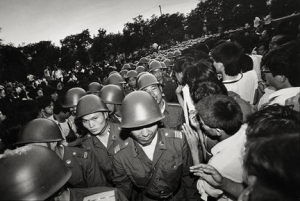Capital-islam: Spiritual Economies in Southeast Asia
Memo #68 – Is Islam compatible with capitalism? The recent uprisings in the Middle East have prompted renewed interest in this question. In his book, The Long Divergence, the eminent economist, Timur Kuran, suggests that Islam is to blame for the poor economic performance of Islamic countries. But today, a new breed of “spiritual reformers” sees Islam as a recipe for commercial success.
Tough Choices Ahead for Global India
Memo #64 – This is a time of great tumult in the Middle East. All major global powers are struggling with tough choices to strike a balance between their values and strategic interests in responding to the unfolding crisis in Libya. India is no exception but it is particularly under the spotlight as it assumed the non-permanent membership of the United Nations Security Council (UNSC) in January.
Is China the Next Domino?
Memo #59 (Part 2) – Authoritarian regimes seem to be crumbling almost daily. Will China go the way of Middle Eastern dictatorships?
The similarities are obvious. China relies on harsh measures to put down calls for democratic reform. And it is plagued by a huge gap between rich and poor, rampant corruption, rising prices of basic food stuffs, and high unemployment among recent university graduates.
Comparing Tahrir Square Demonstrations of 2011 and Tiananmen Protests of 1989
Memo #59 (Part 1) – At first glance there are many similarities: huge crowds (including many young people) demonstrate peacefully in the main square of the capital city against a repressive government that has been in power for a long time; the crowd has no clearly defined leaders; and the military allows the demonstrations to continue over an extended period of time.


